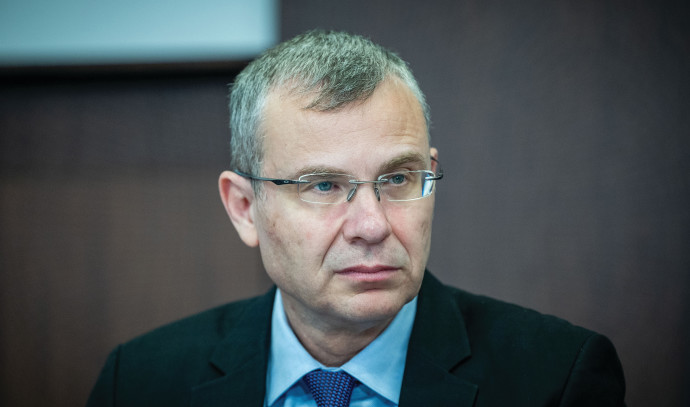Russian President Vladimir Putin is rushing to defeat Ukraine because the Kremlin stands on the brink of economic crisis.
Its forces have thrown caution to the wind, attacking Ukrainian positions with reckless abandon.
Moscow’s tolerance for high losses, estimated now at over 1,500 casualties per day, reflects the desperation of a country facing dire economic straits. Putin faces a growing dilemma: End the war soon or risk economic disaster.
As it takes power, the Trump administration will be looking to two metrics to assess the war. The first measures Russia’s military progress, while the other tracks the deterioration of Russia’s economy.
Throughout the Biden administration the discussion in Washington has focused mainly on the first metric. The incoming Trump administration should double down on the second.
President-elect Donald Trump says he wants to end the war. This is the right goal, but Putin is the lawless aggressor and shouldn’t be bailed out.
And the economic sanctions against Russia are starting to work well.
Russia may be gaining on the ground, but if it gets a big chunk of Ukraine and sanctions are eased with no significant compromise on its part, we’ve essentially bailed it out.
Big mistake: The Kremlin’s revenues from oil and gas exports, which comprised 60% of total government income before the invasion, are today down over 37%.
Official Russian data suggest military spending has at least tripled, alongside a bevy of new social expenditures.
In response to declining revenues and rising spending, Russia has been forced to run deficits.
Western sanctions have effectively cut access to foreign funding to plug the gap.
Chinese banks are also restricting credit to avoid secondary sanctions.
Alarmingly for Moscow, Russia’s domestic bond auctions have also faltered. Russia has been able to sell fewer than 50% of its listed bond offerings in the last two quarters.
Authorities had hoped to sell $27 billion this quarter to fill budget shortfalls, but the first attempt at a large sale on Oct. 23 failed due to “lack of bids at acceptable price levels.”
The result is predictable. While the Kremlin’s own figures put countrywide inflation at 9%, interest rates in Russia tell a different story: 21% for private debt, with reports hinting at to 25% soon.
The rapid decline in the ruble and rise in food prices suggest inflation is much higher than the official data.
Last week, the Russian Central Bank announced that it was suspending buying foreign currency on the domestic market in response to the rapid deterioration of the ruble.
The Kremlin’s only recourse has been to sell its reserves of gold and other liquid reserves from its National Wealth Fund, half of which is frozen in Europe.
By the end of 2023, Moscow had sold over half of its remaining assets; analysts estimate that these reserves will be exhausted in the first half of 2025.
With a financial picture as bleak as this, it’s easy to see why Vladimir Putin is attacking hard in Ukraine. Like a shark that senses blood in the water, the United States and its European allies should respond by squeezing the Russian economy.
First, the new Trump administration should consider imposing a total ban on Russian oil sales.
At minimum, it should lower the existing price cap by half. Such a policy would cut deeply into the Kremlin’s ability to monetize its energy reserves.
The West should also enforce secondary sanctions on companies or banks that violate sanctions on Moscow.
Ukraine’s strike campaign against Russian refineries further hamstrings Russian exports, and the United States and Canada alone should be able to address any of the resulting supply gaps and price fluctuations in global markets.
Second, the US should work to prevent China from providing Russia with sensitive technologies. Secondary sanctions on banks or other financial institutions that facilitate this trade would compound Russia’s economic problems.
Third, Washington and its European allies should broaden efforts to repurpose frozen Russian assets for the war effort.
These steps will force Putin into a dilemma: Either raise taxes and cut social services, or risk hyperinflation to continue the fight against Ukraine.
Each of these choices will undercut his efforts to maintain public support for the war and for his regime.
Western sanctions have placed considerable stress on Russia’s financial system. Increasing the pressure further will ensure that leaves the Kremlin no choice but end the war quickly.
Thomas Duesterberg is a senior fellow at Hudson Institute, where Peter Rough directs the Center on Europe and Eurasia.

 By New York Post (Opinion) | Created at 2024-12-01 11:29:47 | Updated at 2024-12-04 08:08:38
2 days ago
By New York Post (Opinion) | Created at 2024-12-01 11:29:47 | Updated at 2024-12-04 08:08:38
2 days ago








